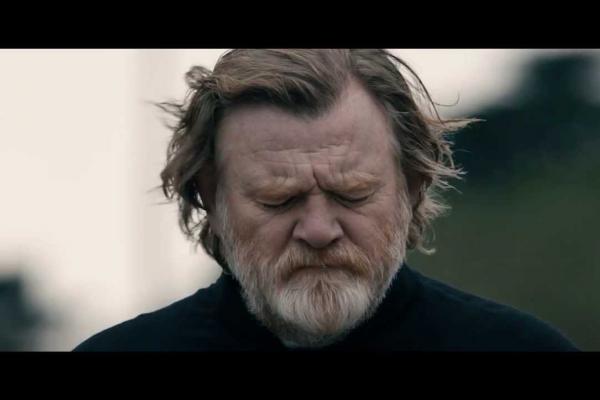WHAT’S A GOOD priest for? So asks Calvary, the second feature film from writer-director John Michael McDonagh, rooting itself in Ireland’s coastal landscape, centering on a pastor threatened with scapegoat-retributive murder from a grievously sinned-against parishioner. Its vibe owes a great deal to the quiet reflection of films such as Jesus of Montreal and Au Hasard Balthazar (in which a donkey evokes the love and wounds of Christ), and the archetypal Westerns High Noon and Unforgiven. Brendan Gleeson plays a priest who was drawn into the church after his wife’s death, which allows us the rare experience of seeing a cinematic Catholic priest who is both a parent to his flock and to a beloved daughter, who feels somewhat abandoned by his commitment to the church.
Gleeson has the uncanny ability to hold his massive frame as both solid—almost concrete—and vulnerable. Knowing that everyone is both broken and breaker, his Father James is healing on behalf of a flawed institution, although he doesn’t confuse vocation with a job. His bishop’s response to a request for help is “I’m not saying anything,” reminding me of Daniel Berrigan’s challenge to religious hierarchies, heard at a public meeting in Dublin in the run-up to the Iraq war: “In Vietnam, they had nothing to say, and said nothing; now, they have nothing to say, and they’re saying it.”
Father James understands the difference between stewarding power and grabbing it (one obvious signal of his goodness), and he is up to his neck in the community, running the gamut from friendship with an American writer looking for inspiration in the land of his presumed ancestors to a visit with a former pupil whose own inner darkness has led him to do monstrous things.
Read the Full Article

